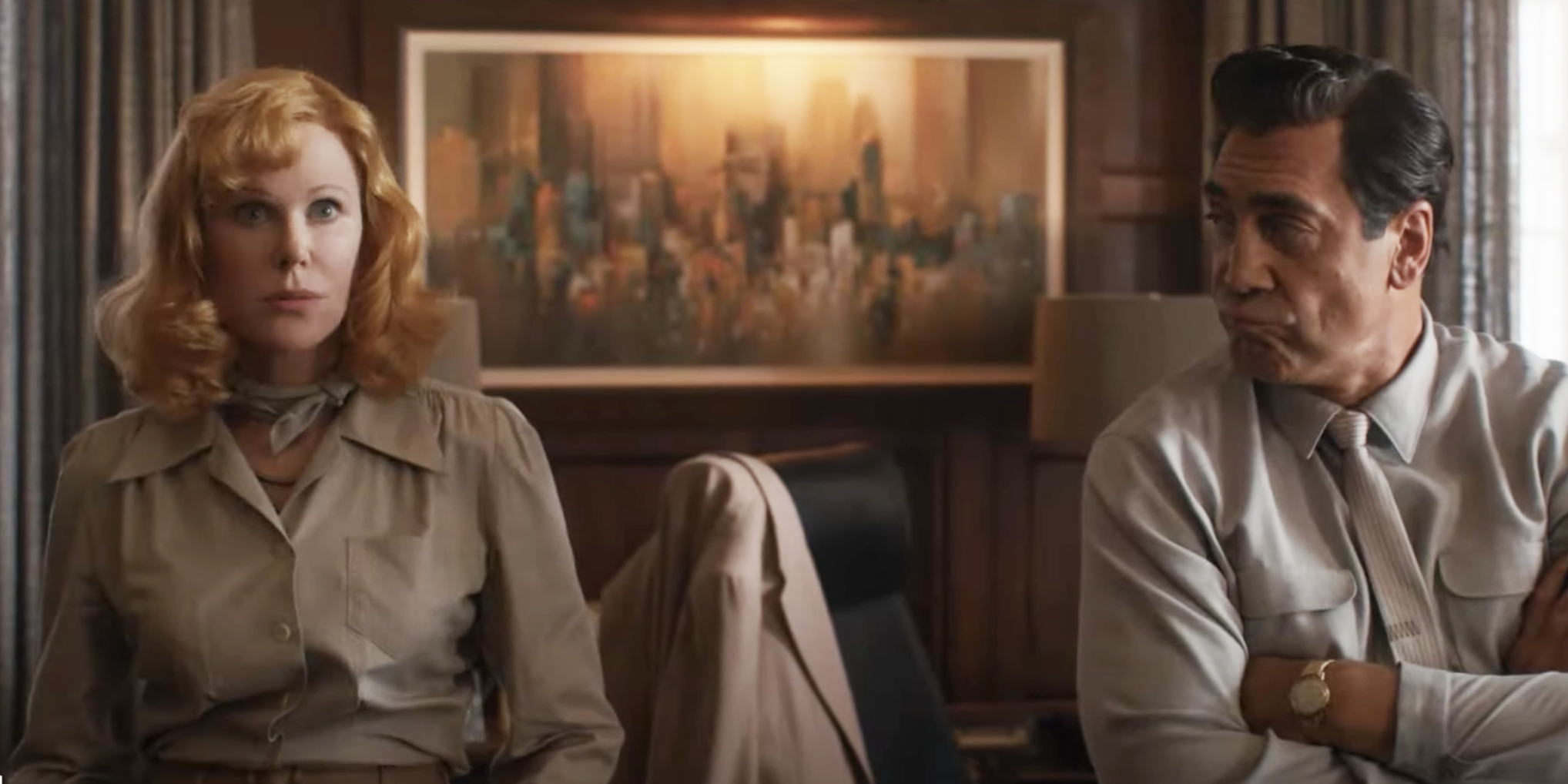Aaron Sorkin’s latest masterwork is ready to reach our TV sets.
“Being the Ricardos” (shown here with Nicole Kidman and Javier Bardem) is already in theaters; it arrives Tuesday (Dec. 21) on Amazon’s Prime Video, which produced it. Like all things Sorkin, we cheer it … cautiously.
When working with pure fiction – including the “West Wing,” “Newsroom” and “Sports Night” TV series – Sorkin is the best, concocting wondrous twists.
And when adapting true events? He still concocts.
“Being the Ricardos” depicts a week in the life of Lucille Ball and Desi Arnaz (plus flashbacks), as they make an “I Love Lucy” episode. The dialog is brilliant; several two-person scenes – Ball with William Frawley, Vivian Vance and writer Madelyn Pugh – are among the best you’ll ever see.
It’s a great film … once you forgive Sorkin’s habit of manipulating true stories. Consider:
– “The Social Network” was partly built around the notion that Mark Zuckerberg couldn’t get a girlfriend. In truth, during that time he was dating a brilliant and attractive Ivy Leaguer who is now a philanthropist, a former pediatrician and his wife.
– “The Trial of the Chicago 7” ended with Tom Hayden brashly standing in the courtroom and reading the names of Vietnam dead – something that apparently didn’t happen.
– And “Ricardos” packs all the big events of the Ball/Arnaz world into one week … then has people remark on what a week it was. It also has a key phone call that appears to be pure fiction.
We don’t know about the other true stories Sorkin has adapted – “Moneyball,” “Molly’s Game,” “Charlie Wilson’s War” or “Steve Jobs.” But with his immense talent, he could fascinate us even when sticking to the truth. And for “I Love Lucy,” that truth is impressive:
When the show debuted in 1951, TV was wobbly. It had great moments in live drama, but prime time also had boxing, wrestling, “Film Filler,” “Johns Hopkins Science Review” and “Lessons in Safety.”
Arnaz had an engineer develop a system that could let a studio audience watch a situation comedy at the same time that cameras were filming it. That’s the same notion that has kept giving us great sitcoms, from “All in the Family” to “Seinfeld” and “The Big Bang Theory.”
With just two writers (later adding a third), producer Jess Oppenheimer managed to make 35 episodes the first season and 180 in just six seasons. With her ability to project endless hope and optimism, Ball created a character we truly loved, somehow making each blunder seem believable.
Ratings were enormous; a typical episode in the 1952-53 season was seen in two-thirds of all TV homes. Arnaz built the Desilu studio into a powerhouse, with sitcoms plus “The Untouchables” and (after his departure) “Star Tek” and “Mission Impossible.” It later became Paramount Television.
This was a huge success story, clouded by problems:
– A red scare: In 1936, before it was controversial, Ball had listed herself as a Communist, reflecting the passion of a beloved kin. Ironically, she married Arnaz, stridently anti-Communist ever since his family was displaced by an early student/socialist movement in Cuba.
– Arguments with the network and sponsor, involving everything from the original casting – “keep the redhead and ditch the Cuban,” Broadway’s Oscar Hammerstein had suggested – to Ball’s pregnancy.
– Alcohol. Frawley drank during work; Arnaz drank – and gambling and womanized – after work.
Sorkin has piled all of those problems into his superweek, then added more. Kidman is superb as Ball. Bardem captures Arnaz’s charisma, even if he’s no match for the guy’s good looks. And Sorkin, as both writer and director, fills the film with depth and intelligence.
That makes his excesses sort of forgivable. Catch “Being the Ricardos” in a theater (preferably) or on Amazon Prime. Then see “I Love Lucy” on Paramount+; it’s great television.
